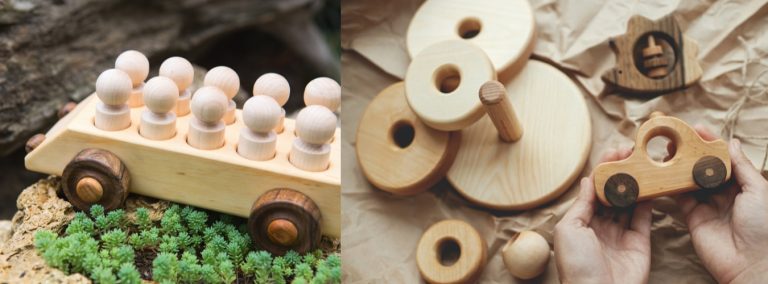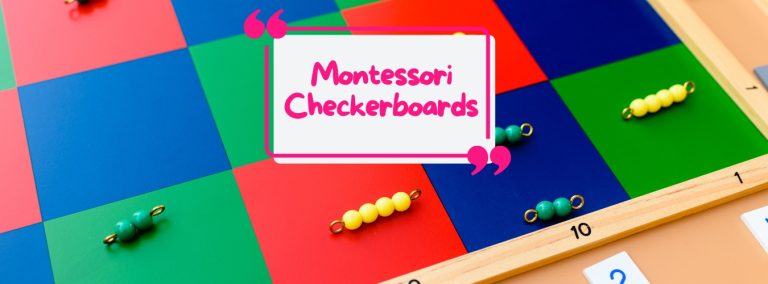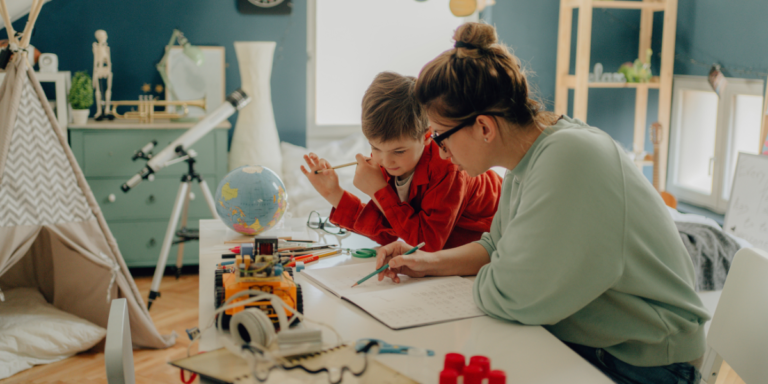Montessori Toys FAQs
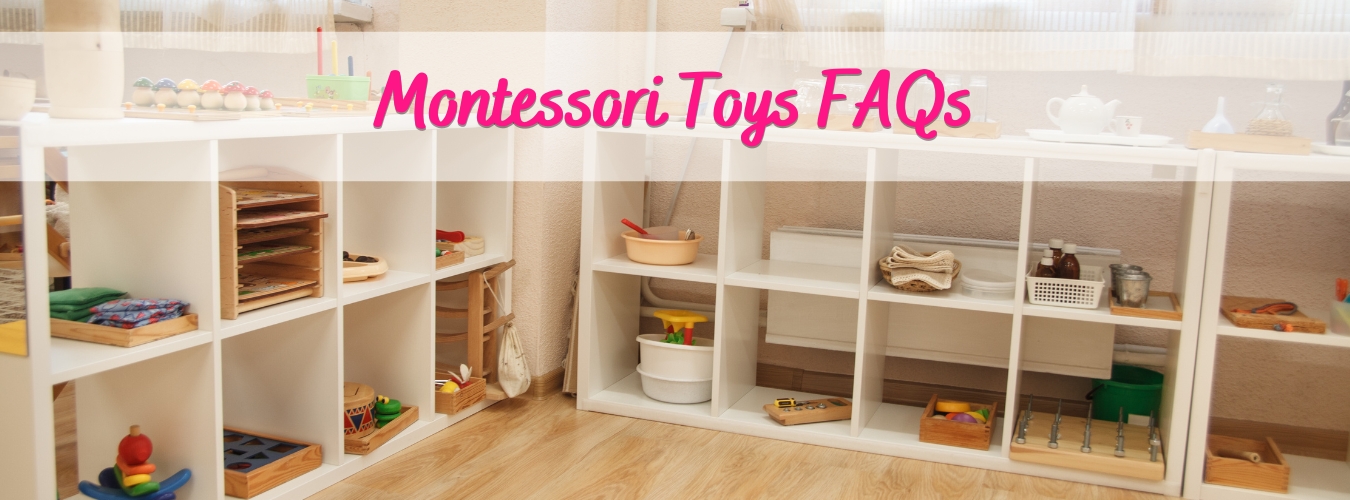
You may have a few questions about Montessori toys and their benefits. In this blog post, we did our best to come up with a list of frequently asked questions about Montessori toys. Hopefully, we are able to answer all of the questions you have. Your baby or your toddler can benefit from playing with Montessori toys and they are worth the investment. We go over 20 Montessori toys FAQs below.
1. What are Montessori toys?
Montessori toys are learning tools designed according to the Montessori method, which encourages self-directed activity and hands-on, interactive learning. They are typically made from natural materials and are designed to help children develop various skills at their own pace.
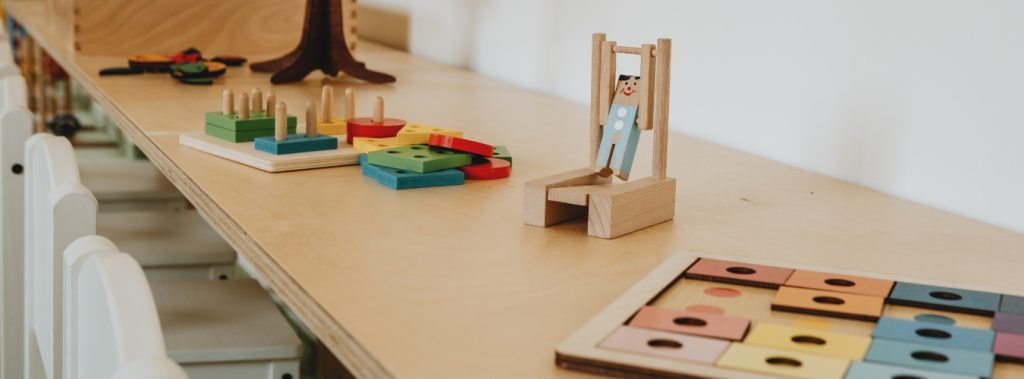
2. Why are Montessori toys usually made of wood?
Wood is a natural, durable, and safe material for children, and it provides different textures and weights that stimulate a child’s senses. Also, wooden toys usually don’t have loud noises or flashing lights, promoting more imaginative and creative play.
3. How do Montessori toys support a child’s development?
Montessori toys promote the development of various skills, including fine motor skills, hand-eye coordination, problem-solving, and spatial awareness. They are also beneficial for cognitive development, creativity, and the understanding of practical life skills.
4. At what age should a child start using Montessori toys?
Montessori toys can be introduced as early as a few months old, with age-appropriate toys like rattles and mobiles. As the child grows, more complex toys can be introduced to match their developmental stage. A child should start using Montessori toys as soon as they are ready to play with them. For the most part, they will be ready for them sometime between 3-6 months of age.
5. Are Montessori toys better than regular toys?
Montessori toys focus on stimulating a child’s natural curiosity and encouraging self-directed learning, making them a great supplement to regular toys. They’re designed to be multi-purpose, durable, and grow with your child, providing long-term educational benefits.
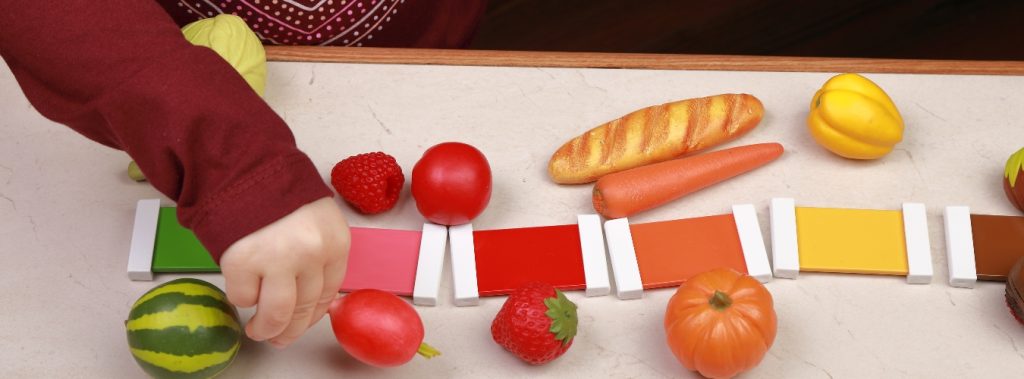
6. How do I choose the right Montessori toy for my child?
When selecting a Montessori toy, consider your child’s age, interests, and developmental stage. The toy should be challenging yet manageable, encouraging your child to learn and grow through play. There are also toys that are better for specific ages. For example, easier puzzles can be used for 1-2 year olds and 3-4 year olds can work on more advanced puzzle and balancing toys.
7. How do Montessori toys promote sensory play?
Montessori toys are designed to engage multiple senses, allowing children to explore texture, shape, color, and sometimes sounds and smells. Sensory play aids in the development of cognitive and motor skills, as well as language and social interaction. Children will need to use their eyes and their touch to play with certain toys.
8. Can Montessori toys be used for children with special needs?
Yes, Montessori toys can be highly beneficial for children with special needs. Their simple, hands-on nature can help improve fine motor skills, concentration, and self-esteem, though it’s important to choose toys suitable for the child’s specific needs and abilities. Certain toys can offer unique benefits to children with special needs to focus on their development.
9. What skills can my child learn from Montessori toys?
Depending on the toy, children can learn a range of skills including fine motor skills, problem-solving, hand-eye coordination, color and shape recognition, counting, sorting, and even practical life skills like dressing. They can be great for teaching kids different numbers and number patterns as well.
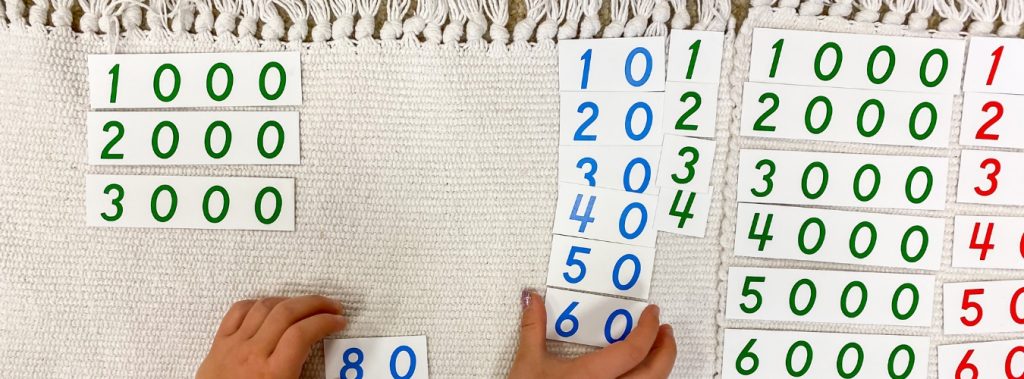
10. Are Montessori toys expensive?
While some Montessori toys can be costly due to their high-quality materials and design, there are also many affordable options available. Furthermore, DIY Montessori-inspired toys can be made at home, making this method accessible for various budgets.
11. Can Montessori toys be used in a group setting?
Absolutely! Montessori toys can facilitate group play, teaching children about sharing, cooperation, and social interaction. They also promote communication as children discuss their creations or problem-solving strategies.
12. How do I clean and maintain Montessori toys?
Most Montessori toys can be wiped clean with a damp cloth. For wooden toys, avoid soaking them in water to prevent damage and warping.
13. Can I use Montessori toys outdoors?
Many Montessori toys can be used outdoors, depending on the material. Activities like sand and water play, gardening, or nature exploration are all aligned with the Montessori philosophy.
14. Can technology and Montessori toys be used together?
While Montessori philosophy emphasizes hands-on learning with physical objects, combining this approach with thoughtful use of educational technology can provide a balanced learning experience.
15. How can parents participate in playing with Montessori toys?
Parents can play alongside their children, asking open-ended questions to stimulate thinking and imagination. However, it’s also important to allow children to explore and experiment independently.
16. Are there any safety concerns with Montessori toys?
Like any toys, ensure Montessori toys are age-appropriate and don’t contain small parts that could be a choking hazard. Always supervise playtime, especially with younger children.
17. Do Montessori toys require assembly?
Some Montessori toys may require assembly, but many are ready to use straight out of the box. Always follow the manufacturer’s instructions for assembly.
18. Are Montessori toys suitable as gifts?
Absolutely! Montessori toys make excellent gifts as they are not only fun but also contribute to a child’s educational development.
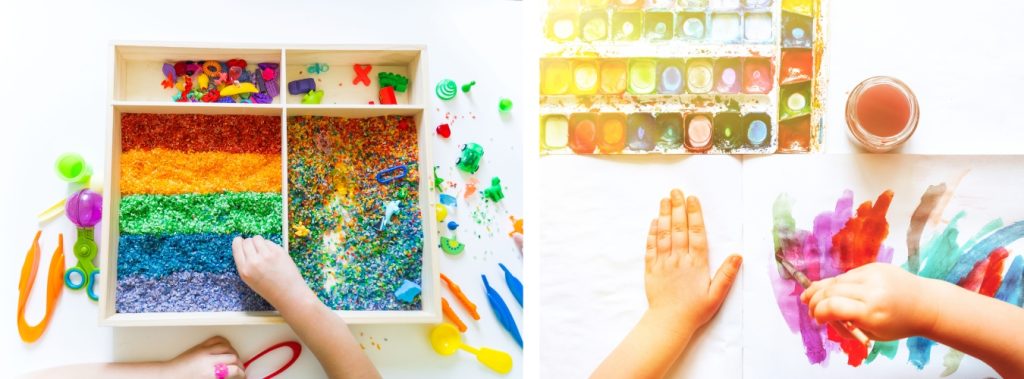
19. Where can I buy Montessori toys?
Montessori toys can be found in many toy stores, educational product stores, and online marketplaces like Amazon. There are also specialty stores dedicated to Montessori and educational toys.
20. Can older children benefit from Montessori toys?
Yes, Montessori toys are beneficial for older children as they promote problem-solving, creativity, and independent thinking. Choose toys that are age-appropriate and align with the child’s interests.
Conclusion
When you need your questions answered about Montessori toys, we have you covered here. Not only can you find the top-rated Montessori toys for kids, you can learn about how to develop your kids.

